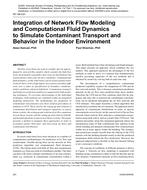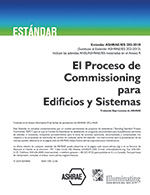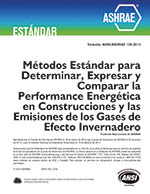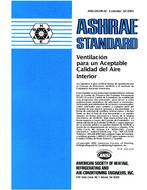Description
The flow of air from one room to another may be approximated by network flow models which consider the bulk flow of air. Such models can predict inter-zone air distributions but cannot predict intra-zone air flow conditions. Computational fluid dynamics, on the other hand, can be used to predict intraroom air flows with a high degree of accuracy provided sufficient care is taken in specification of boundary conditions, initial conditions and grid definition. Contaminant transport and behavior prediction models are supported by both modeling techniques. To overcome shortcomings of the individual techniques, both methods are combined within an integrated modeling framework. The methodology for prediction of contaminant concentration uses three solution procedures in addition to CFD. These involve the setting up and solution of contaminant distribution and transport equations (a sparse linear system), the setting up and solution of air flow equations (a non-linear system) and the setting up and solution of building thermal equations (a sparse non-linear system). This paper presents a method to integrate these approaches in order to accurately predict both inter- and intra-room air flows and contaminant distributions.
Units: SI
Citation: ASHRAE Transactions, vol. 114, pt. 1, New York 2008
Product Details
- Published:
- 2008
- Number of Pages:
- 9
- File Size:
- 1 file , 2.7 MB
- Product Code(s):
- D-NY-08-031




